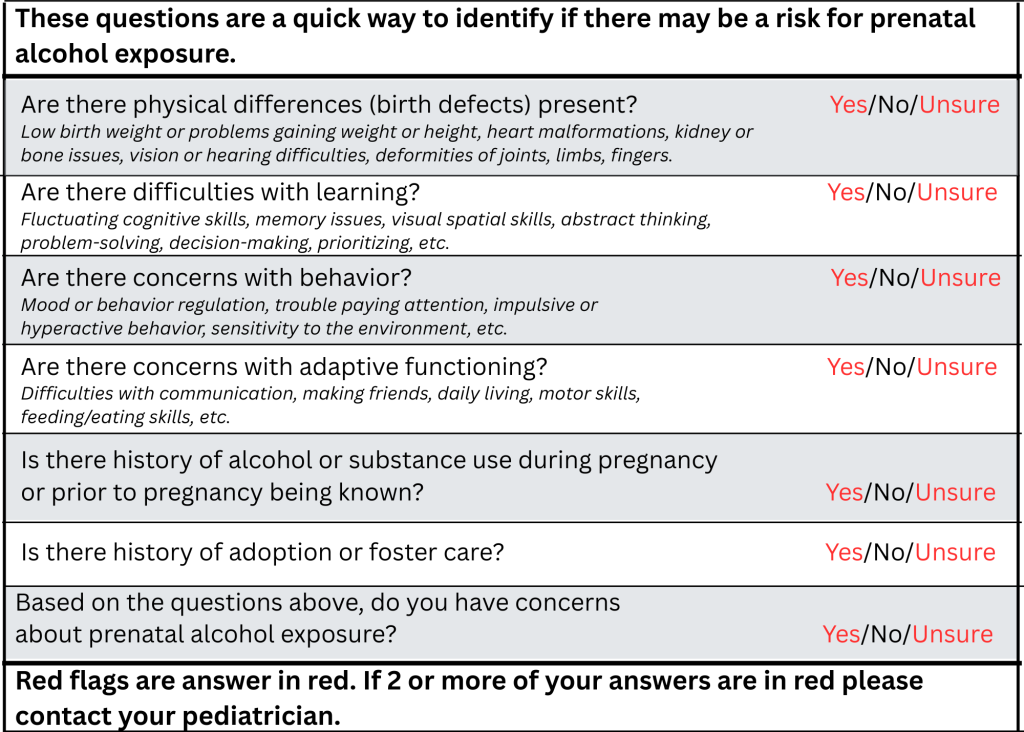Need help now?
Email texasfasd@gmail.com to be connected with a local family support coordinator.
LOOKING FOR HELP? START HERE.

You can also visit our resource page to print these questions and discuss with your doctor.
Our family guide provides an overview of what FASD is, the professionals involved, and next steps to take as an individual, parent, or caregiver.
Have an honest conversation with your doctor about your daily struggles and ask about FASD. Bring your screener results (see step 1) and the overlapping characteristics chart to guide your discussion.
Ask your doctor about an FASD evaluation and referral to FASD-trained provider. Locate a diagnostic provider or therapist in your area by using the Provider Directory.
Community is crucial. We are here for you!
- Connect with one of our family peer mentors.
- Find a support group.
- Visit our resource library for helpful handouts.
How We Help
You’re in the right place if you’re concerned about prenatal alcohol exposure or FASD. When you or your child struggles, it can be frightening, overwhelming, isolating, and exhausting. You do not have to face this alone. Fetal Alcohol Spectrum Disorders (FASD) affects 1 in 20 in the United States.
FASD is a spectrum of presentations. There is no one blood test or examination that can confirm prenatal alcohol exposure. Instead, diagnosis usually comes from a sum of physical, mental, behavioral, and emotional testing. That is why it takes a multidisciplinary approach to support individuals with FASD. But at the heart of care is you. Trust in yourself. You are strong and capable and your voice matters.
Texas FASD Network providers family support for FASD in the following ways:
- Peer-to-peer support
- Directory of FASD-informed providers and therapists
- National and state advocacy for changing systems of care
- Improving education and awareness among clinicians, educators, lawmakers, and families
We do not offer direct medical advice, but we can connect you with those who can. We know this journey isn’t easy. We are committed to providing family support as you navigate the systems of care. It is a privilege to be a part of your community.



